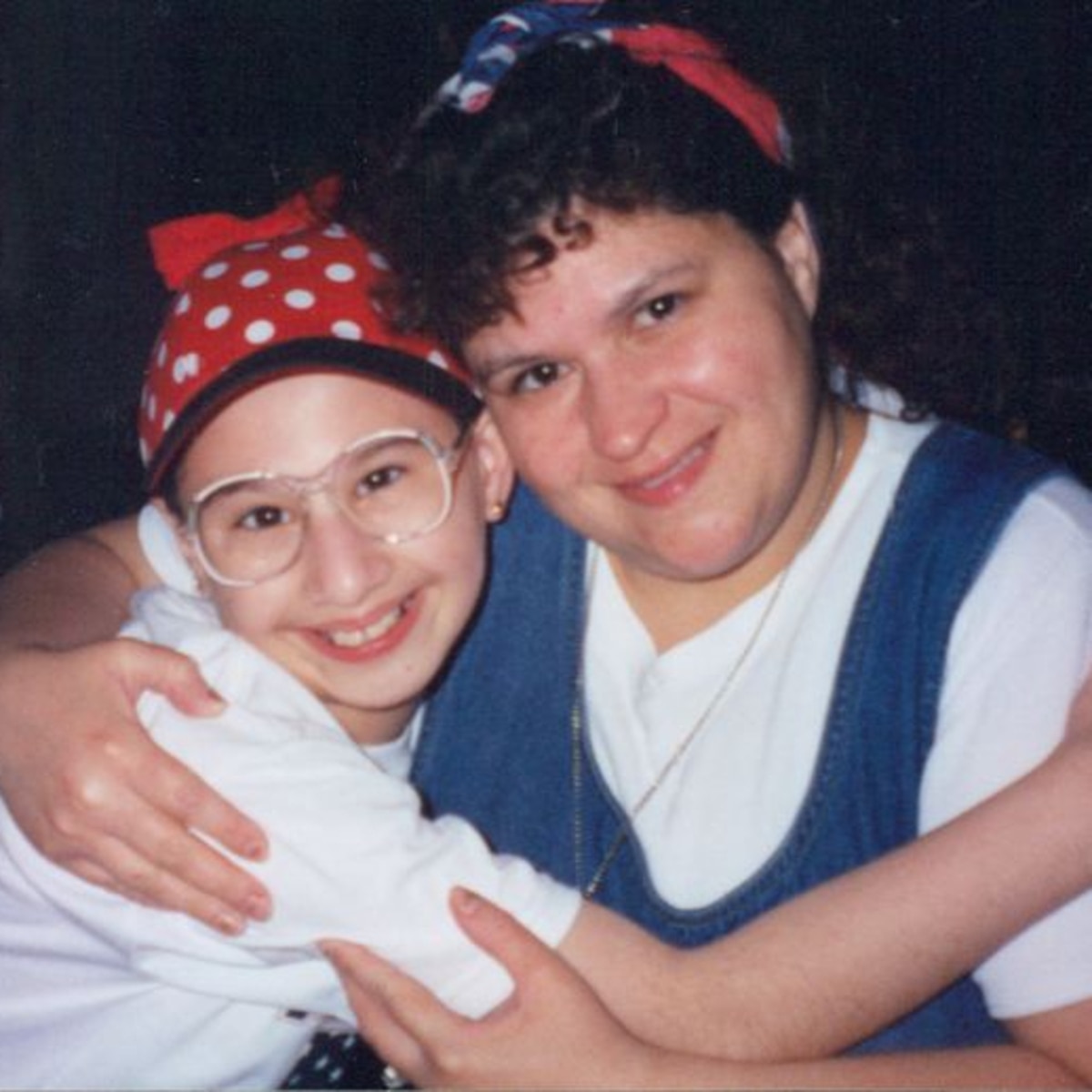The Gypsy Rose mom crime scene became the focal point of a case that exposed the disturbing reality of Munchausen syndrome by proxy and the devastating consequences of unchecked control. For those unfamiliar with the case, it’s a story that seems almost too bizarre to be true, yet every detail has been meticulously documented and analyzed. As the story unfolded, the public learned about the intricate layers of deceit that surrounded Gypsy Rose’s life. Dee Dee Blanchard, Gypsy’s mother, had long claimed that her daughter suffered from a host of debilitating illnesses, including leukemia, muscular dystrophy, and other chronic conditions. However, the truth was far more sinister: Gypsy was, in fact, a victim of medical child abuse, a form of psychological and physical manipulation that left her isolated and dependent on her mother. The crime scene where Dee Dee’s lifeless body was discovered in 2015 marked the beginning of the unraveling of this shocking tale. It revealed not only the depth of Dee Dee’s manipulation but also the desperate measures Gypsy took to escape her mother’s suffocating grip. The Gypsy Rose mom crime scene has since become a symbol of the broader issues surrounding domestic abuse, mental health, and the justice system. It has sparked debates about the role of law enforcement, the responsibility of medical professionals, and the societal pressures that allow such cases to go unnoticed for years. This article will delve into the details of the crime, explore the psychological dynamics at play, and examine the aftermath of the case. By the end, readers will gain a comprehensive understanding of this harrowing story and its implications for society.
Table of Contents
- Biography of Gypsy Rose Blanchard
- Personal Details and Bio Data
- What Happened at the Gypsy Rose Mom Crime Scene?
- Psychological Insights: Understanding Munchausen Syndrome by Proxy
- Why Did Gypsy Rose Kill Her Mother?
- What Were the Legal Consequences for Gypsy Rose?
- How Did the Media Shape Public Perception of the Case?
- Lessons Learned: Preventing Similar Cases in the Future
Biography of Gypsy Rose Blanchard
Gypsy Rose Blanchard’s life has been a whirlwind of tragedy, resilience, and transformation. Born on July 27, 1991, in Baton Rouge, Louisiana, Gypsy spent the majority of her childhood under the shadow of her mother, Dee Dee Blanchard, who claimed that Gypsy suffered from numerous debilitating illnesses. What seemed like a story of a devoted mother caring for her sick child turned out to be a carefully orchestrated web of lies and manipulation. Gypsy’s biography is not just a tale of survival but also a testament to the strength of the human spirit in the face of unimaginable adversity.
Growing up, Gypsy was isolated from the outside world, homeschooled, and rarely allowed to interact with peers. Her mother controlled every aspect of her life, from her medical treatments to her social interactions. Despite the facade of illness, Gypsy was, in reality, a healthy young woman trapped in a nightmare. Her journey from victim to survivor began when she secretly started communicating with people online, eventually leading to her involvement in the murder of her mother. This crime, while shocking, marked the beginning of Gypsy’s path to freedom and self-discovery.
Read also:Discovering Sssniperwolf The Gaming Queen Who Conquered Youtube
Today, Gypsy Rose is serving a 10-year prison sentence after pleading guilty to second-degree murder. While her story is far from over, she has become a symbol of hope for those who have endured similar situations. Her biography serves as a reminder of the importance of recognizing and addressing cases of abuse, no matter how well-hidden they may seem.
Personal Details and Bio Data
| Full Name | Gypsy Rose Blanchard |
|---|---|
| Date of Birth | July 27, 1991 |
| Place of Birth | Baton Rouge, Louisiana, USA |
| Parents | Dee Dee Blanchard (Mother), Rod Blanchard (Father) |
| Notable Events | Victim of Munchausen Syndrome by Proxy, involved in the murder of Dee Dee Blanchard in 2015 |
| Current Status | Serving a 10-year prison sentence; eligible for parole in 2025 |
What Happened at the Gypsy Rose Mom Crime Scene?
The Gypsy Rose mom crime scene was discovered on June 14, 2015, in Springfield, Missouri, where Dee Dee Blanchard’s body was found stabbed to death in her home. The discovery sent shockwaves through the community and prompted an immediate investigation. Law enforcement quickly identified Gypsy Rose as a person of interest, leading to her arrest and the subsequent unraveling of the truth behind years of deception. The crime scene itself was a chilling tableau, with evidence pointing to a premeditated act carried out by Gypsy and her then-boyfriend, Nicholas Godejohn.
Investigators uncovered a series of text messages and online communications that revealed Gypsy’s desperate desire to escape her mother’s control. These exchanges painted a picture of a young woman who had endured years of psychological and physical abuse, ultimately leading her to take drastic measures. The crime scene was meticulously examined, with forensic evidence playing a crucial role in piecing together the events of that fateful night. Bloodstains, the murder weapon, and other physical evidence all pointed to a violent struggle, underscoring the intensity of the situation.
The discovery of the Gypsy Rose mom crime scene not only exposed the truth about Dee Dee’s manipulation but also raised questions about the systems that failed to protect Gypsy. Neighbors and acquaintances had long suspected something was amiss, yet no one intervened. This case serves as a stark reminder of the importance of vigilance and the need for better support systems for victims of abuse. The crime scene became a symbol of the broader issues surrounding domestic violence and the often-hidden nature of such cases.
Key Evidence Found at the Crime Scene
- A blood-stained knife identified as the murder weapon
- Text messages between Gypsy and Nicholas planning the crime
- Signs of a struggle, including overturned furniture
- Medical records and documents revealing Dee Dee’s deception
Psychological Insights: Understanding Munchausen Syndrome by Proxy
At the core of the Gypsy Rose mom crime scene lies a psychological phenomenon known as Munchausen syndrome by proxy (MSBP), a form of abuse where a caregiver fabricates or induces illness in a person under their care. Dee Dee Blanchard’s actions are a textbook example of this disorder, which often stems from a deep-seated need for attention and validation. By portraying Gypsy as a chronically ill child, Dee Dee garnered sympathy and support from the community, medical professionals, and charitable organizations. This manipulation not only isolated Gypsy but also reinforced Dee Dee’s control over her daughter’s life.
MSBP is a complex and insidious form of abuse that can be difficult to detect. Victims often grow up believing they are genuinely ill, as was the case with Gypsy. The psychological toll of such abuse is immense, leading to confusion, low self-esteem, and a distorted sense of reality. In Gypsy’s case, the years of deception left her ill-equipped to navigate the world independently, making her desperate for a way out. Understanding MSBP is crucial for recognizing the warning signs and preventing similar cases in the future.
Read also:Discovering Ailah Overton Biography Achievements And Influence
Experts suggest that early intervention and a multidisciplinary approach are key to addressing MSBP. Medical professionals, social workers, and law enforcement must work together to identify and support victims. Public awareness campaigns can also play a vital role in educating communities about the signs of MSBP and encouraging individuals to speak up if they suspect abuse. By shedding light on this psychological disorder, we can better protect vulnerable individuals and prevent tragedies like the Gypsy Rose mom crime scene from occurring.
Why Did Gypsy Rose Kill Her Mother?
The question of why Gypsy Rose killed her mother is one that has intrigued the public since the case first came to light. At its core, the answer lies in years of psychological and physical abuse that left Gypsy feeling trapped and powerless. For most of her life, Gypsy was subjected to a relentless cycle of manipulation by Dee Dee, who controlled every aspect of her existence. From falsifying medical records to isolating her from friends and family, Dee Dee’s actions left Gypsy with no means of escape—until she discovered the internet.
Through online interactions, Gypsy found a lifeline in Nicholas Godejohn, a man she met on a Christian dating site. Their relationship provided Gypsy with the emotional support and validation she had been denied for years. Together, they hatched a plan to free Gypsy from her mother’s grasp. While the decision to commit murder was undoubtedly extreme, it was born out of desperation and a desire for autonomy. Gypsy has since stated that she never intended for her mother to die but felt she had no other options.
This tragic decision highlights the devastating consequences of unchecked abuse and the lengths to which victims may go to reclaim their freedom. It also raises important questions about the societal and systemic failures that allowed Dee Dee’s manipulation to continue unchecked for so long. By examining Gypsy’s motivations, we gain a deeper understanding of the complex dynamics at play in cases of domestic abuse.
Factors That Contributed to Gypsy’s Decision
- Years of psychological manipulation and control by Dee Dee
- Lack of access to external support systems
- Growing awareness of her own reality through online interactions
- Desperation to escape an unbearable situation
What Were the Legal Consequences for Gypsy Rose?
Following the discovery of the Gypsy Rose mom crime scene, Gypsy was arrested and charged with first-degree murder. However, during the legal proceedings, her defense team argued that she was a victim of years of abuse and manipulation, which influenced her actions. In 2016, Gypsy pleaded guilty to second-degree murder and was sentenced to 10 years in prison. This outcome reflected the court’s recognition of the mitigating circumstances surrounding the case and Gypsy’s role as both a perpetrator and a victim.
The legal consequences extended beyond Gypsy, with Nicholas Godejohn also facing charges for his involvement in the crime. He was convicted of first-degree murder and sentenced to life in prison without the possibility of parole. The case set a precedent for how the justice system handles crimes committed by individuals who have endured prolonged abuse, sparking debates about the balance between accountability and compassion.
Gypsy’s sentence includes the possibility of parole, with her earliest release date set for 2025. While incarcerated, she has worked to rebuild her life, pursuing education and advocating for abuse awareness. Her story serves as a reminder of the complexities of justice in cases involving domestic violence and the importance of addressing the root causes of such crimes.
How Did the Media Shape Public Perception of the Case?
The media played a pivotal role in shaping public perception of the Gypsy Rose mom crime scene, transforming it into a national sensation. From documentaries to dramatizations, the case has been dissected and analyzed from every angle, sparking widespread interest and debate. Shows like HBO’s *Mommy Dead and Dearest* and Hulu’s *The Act* brought the story to a global audience, highlighting the psychological and emotional complexities of the case.
While the media coverage helped raise awareness about issues like Munchausen syndrome by proxy and domestic abuse, it also raised ethical questions about the portrayal of real-life tragedies for entertainment. Critics argue that dramatizations can oversimplify the nuances of such cases, reducing them to sensationalized narratives. On the other hand, supporters believe that media exposure can drive meaningful conversations and inspire change.
Ultimately, the media’s role in the Gypsy Rose case underscores the power of storytelling to influence public opinion and policy. By keeping the conversation alive, journalists and filmmakers have ensured that the lessons of this tragedy continue to resonate with audiences worldwide.

